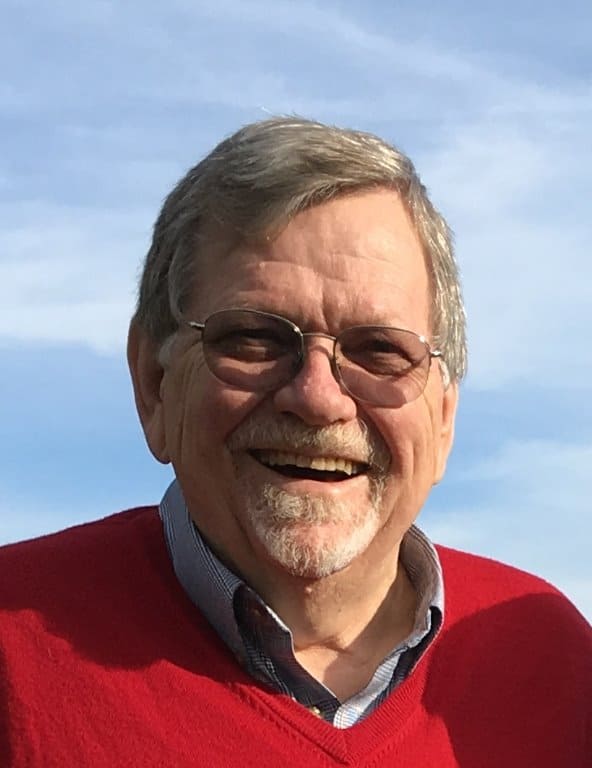Distinguished Fellow
Roy L. Streit, Ph.D.
- Division:
- Advanced Mathematics Applications (AMA)

Dr. Streit's research interests include multi-target tracking, multi-sensor data fusion, distributed autonomous systems, signal processing, medical imaging and statistical methods for pharmacovigilance and business analytics. He was the recipient of the 1999 Solberg Award from the American Society of Naval Engineers, the Department of the Navy Superior Civilian Achievement Award in 2001, and the Donald W. Tufts award in underwater acoustics signal processing from the IEEE in 2015.
Dr. Streit joined Metron in 2005. His research interests include multi-target tracking, multi-sensor data fusion, distributed autonomous systems, signal processing, medical imaging and statistical methods for pharmacovigilance and business analytics. His recent research involves applications of analytic combinatorics to problems in multi-target, multi-sensor tracking, and to combinatorial optimization problems in natural language processing and common subgraph matching in high level fusion.
Dr. Streit is a Life Fellow of the IEEE. He is a co-author (with colleagues) of several books: Analytic Combinatorics for Multiple Object Tracking, Springer, 2020; Bayesian Multiple Target Tracking, Second Edition, Artech House, 2014; and Poisson Point Processes: Imaging, Tracking, and Sensing, Springer, 2010. The two earlier books have been translated into Chinese. He has published numerous scientific journal papers, book chapters, and invited and contributed papers at international conferences and workshops. He holds nine US patents. He was a NATO Science and Technology Organization Lecturer on multisensor fusion (SET-157: 2010-2012) and also on advanced algorithms for fusing hard and soft information (IST-134: 2015-2016). He was an Invited Lecturer on radar and sonar tracking, Hanyang University, Ansan, Republic of Korea, 2014.
He is serving a second term on the Board of Governors of the IEEE Aerospace and Electronics Systems Society (AESS), and served as Vice President for Industry Relations in 2018. He is currently a Distinguished Lecturer (2020–2022) of the AESS. He was General Co-Chair of the ISIF/IEEE Fusion Conference held in Xi’an, China, in 2017. He served as President of the International Society for Information Fusion (ISIF) in 2012, and continues to serve on the ISIF Board of Directors. He is the founding Editor-in-Chief of the ISIF Perspectives Magazine. He was Technical Program Co-Chair for the 2015 ISIF/IEEE Fusion Conference, Washington, DC, and General Co-Chair for the 2013 ISIF/IEEE Fusion Conference, Istanbul, Turkey. He was the Awards Chair for the 2016 ISIF/IEEE Fusion Conference, Heidelberg, Germany.
Prior to joining Metron, Dr. Streit was a Chief Research Scientist in the Senior Executive Service (SES) at the U.S. Naval Undersea Warfare Center (NUWC). The focus of his work was the development, evaluation and application of multi-sensor data fusion algorithms in support of submarine sonar and combat control automation. He initiated and led multi-disciplinary exploratory and advanced development efforts to demonstrate new and advanced capabilities for integrated target classification, detection, and tracking. He and his team proposed and developed novel multi-spectral multi-target tracking algorithms that were demonstrated on four major submarine passive sonar arrays.
Dr. Streit served as Exchange Scientist at the Defence Science and Technology Organisation (DSTO) in Adelaide, Australia, from 1987–1989. He was a Visiting Scientist at Yale University, Computer Science Department, 1982-4; Visiting Scholar at Stanford University, Operation Research Department, 1981-2; and Visiting Scientist at Adelaide University, Statistics Department, Australia, 1989. He served from 1996–2005 on the Sonar Technology Panel of The Technical Cooperation Program (TTCP), a multinational governmental organization supporting scientific exchange between member nations. He was the recipient of the 1999 Solberg Award from the American Society of Naval Engineers, the Department of the Navy Superior Civilian Achievement Award in 2001, and the Donald W. Tufts award in underwater acoustics signal processing from the IEEE in 2015.
